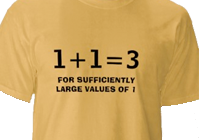 Did you know that Pittsburgh Penguins hockey star Sidney Crosby is one of the few players in the league that increases the average goals per game for those on his line no matter what line he plays with? Did you also know that the average goals per game of players on his former line decrease when he moves to another?
Did you know that Pittsburgh Penguins hockey star Sidney Crosby is one of the few players in the league that increases the average goals per game for those on his line no matter what line he plays with? Did you also know that the average goals per game of players on his former line decrease when he moves to another?
Lest you think he is just a great assists guy keep in mind that he currently leads the NHL in goals.
Simply put, Sidney makes those around him better. It’s a real life example of the old equation 1+1=3.
People like Sidney are extremely valuable for a number of reasons. First, they make everyone better than they were. Most importantly, people want to work with them because of this despite any personality  quirks they might have.
quirks they might have.
I had the fortune of working with a guy that was known to be pretty frank and open about his opinions sometimes on the border of being rude. Others outside the team would say “Geez what a pain in the neck” usually substituting a different part of the anatomy. Those that had a chance to work with him for more than a few months would say, “You were right, Mike rocks (but he is still a pain in the neck).”
Over the first few years at our company I noticed that it always seemed that Mike’s programs really took off when he joined and then stayed successful after he moved on. Mike had an incredible ability to bring energy to stagnant programs and improve his co-workers to a degree that they maintained that level even when he wasn’t there. This happened time and again. He was a natural catalyst.

People that never worked with Mike weren’t sure that they would want to and those that did regularly asked to join his team or have him join theirs.
 Mike was a Sidney except better – his affect lasted longer than him. He didn’t come in, score a lot of goals, and then leave. He came in, scored a lot of goals, got others to score a lot more goals and then left, removing only his own goal contribution.
Mike was a Sidney except better – his affect lasted longer than him. He didn’t come in, score a lot of goals, and then leave. He came in, scored a lot of goals, got others to score a lot more goals and then left, removing only his own goal contribution.
I have known several Mikes over the years and many that are close. I have often told him that if I ever started my own company that he’d be the first one I’d come after. It isn’t only because of Mike’s individual contribution – I know a lot of equally great developers. I want him because of what happens to everyone else.
Once again…
Then ask one more question. Am I like that?
Today’s Question
What things do you do with your peers to help make them better at what they do?






